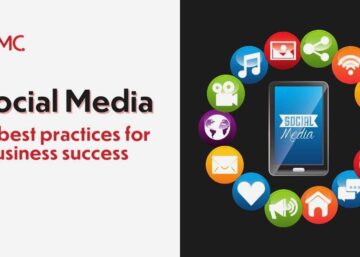What is crisis communications?
Building the reputation of businesses and brands takes years, but can be damaged – sometimes irreparably – in a matter of hours, days or even seconds. From Gerald Ratner’s infamous speech about the ‘crap’ products sold in his chain of jewellery shops, to the VW emissions scandal, history is littered with examples of negative media coverage plunging a company into the spotlight for all the wrong reasons. Communications in the immediate aftermath can make or break the future of any business or brand, from SMEs to global corporations.
In general terms crisis communications is about limiting or repairing reputational damage by delivering targeted messaging to the right people at the right time. However, at MMC we take a more holistic approach and extend crisis communications to cover strategies and action plans that can be drawn up in advance so that if the worst does happen the client has the ability to respond swiftly.
Of course, every crisis is unique so it’s always worth investing in specialist advice from MMC – but this quick guide will highlight the importance of crisis communications, and get you thinking about whether your business is well prepared, or if you need to put more plans in place.
Crisis communication strategies
Creating a crisis communications strategy is like having an insurance policy. If the worst happens, and your business is the subject of negative headlines, the strategy will help to respond quickly with targeted messaging to reassure stakeholders and different segments of your company’s customer base. For SMEs, a targeted response may mean contacting a small number of customers affected by a particular issue – by email or via a face-to-face meeting, for example – rather than issuing a statement via the media which may cause an escalation of the problem in terms of managing communications.
Social media crisis communications
In the social media age, what may at first appear to be a minor issue with one customer can soon go viral and turn into a much bigger problem if it is handled badly. This means that crisis management has to begin with good customer service, and robust social media policies. When HMV went into administration in 2013 and job losses were announced, several disgruntled employees were able to access the company’s official Twitter account before managers regained control. Having solid procedures in place in regard to the access and control of social media is a must for all businesses – the lesson here is don’t wait for a crisis to occur before any loopholes in procedures are exposed. Along with secure accounts, it is also important to have accurate and up to date knowledge about what your customers and users are saying about your brand online. This can be achieved through investing in a robust social listening plan. Whilst prevention is always the best approach, if you find yourself at the centre of a media storm it’s always wise to pause any impending outbound messages to give you time to reconsider the potential impact.
Damage limitation
Like it or not, most scenarios requiring crisis communications are a case of limiting the damage caused to the business or organisation. For example, if a major manufacturer has to recall a faulty product, or if a local business is making redundancies, it’s likely that these events will be reported in the media. For PR agencies advising clients about crisis management, one of the hardest tasks is often convincing them that in some circumstances there’s no way to stop negative news about their business or organisation hitting the headlines. In this scenario it’s a waste of valuable time and resources trying to think of ways to stop bad news getting out into the public arena, and far better to accept the fact that there will be media coverage, and look at how this coverage can be managed, and how to effectively get your messages across to customers, employees and the news media
Internal communications
Making sure that you pay attention to internal communications in times of crisis is essential. Nobody wants to hear bad news about the company they work for via the news media before they’ve been told by their employers. But there are numerous examples of this happening. Careful and considerate messaging to staff before a negative story breaks in the media can have a big impact on morale, and on how the story plays out in news and social media.
If tragedy strikes…..
Sir Richard Branson’s response to the Grayrigg rail disaster in 2007 is still widely regarded as a textbook example of how a business leader should act in a time of tragedy. A Virgin train travelling from London to Glasgow derailed near Kendal in Cumbria in 2007, leaving one person dead and many others injured. As the well-known face of the Virgin brand, Branson didn’t hide behind media statements or expect communications managers to stand in for him in front of the news media. He interrupted his family holiday to go straight to the scene and was open and honest about his personal feelings while also deftly making comments about the company’s commitment to safety. This video gives an excellent breakdown of why Branson’s response is an example that many CEOs could learn from. The most important lesson is this – when tragedy strikes you must always put people first.
These are just some of many crisis communications examples and issues to consider, but every crisis and reputation management scenario is different because it will have its own unique challenges which often require specialist, expert advice. MMC has an experienced and knowledgeable team to provide it – so please contact us before you hit the panic button.




